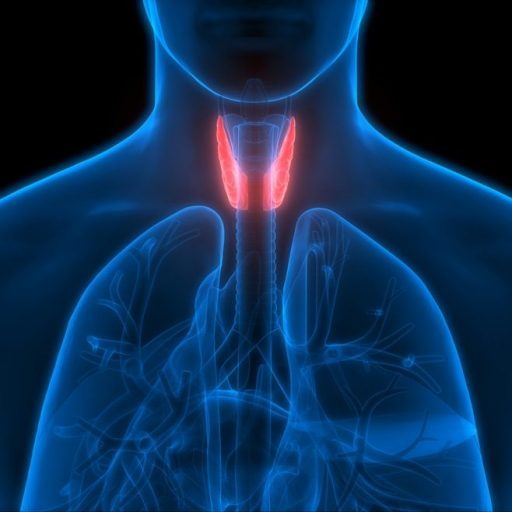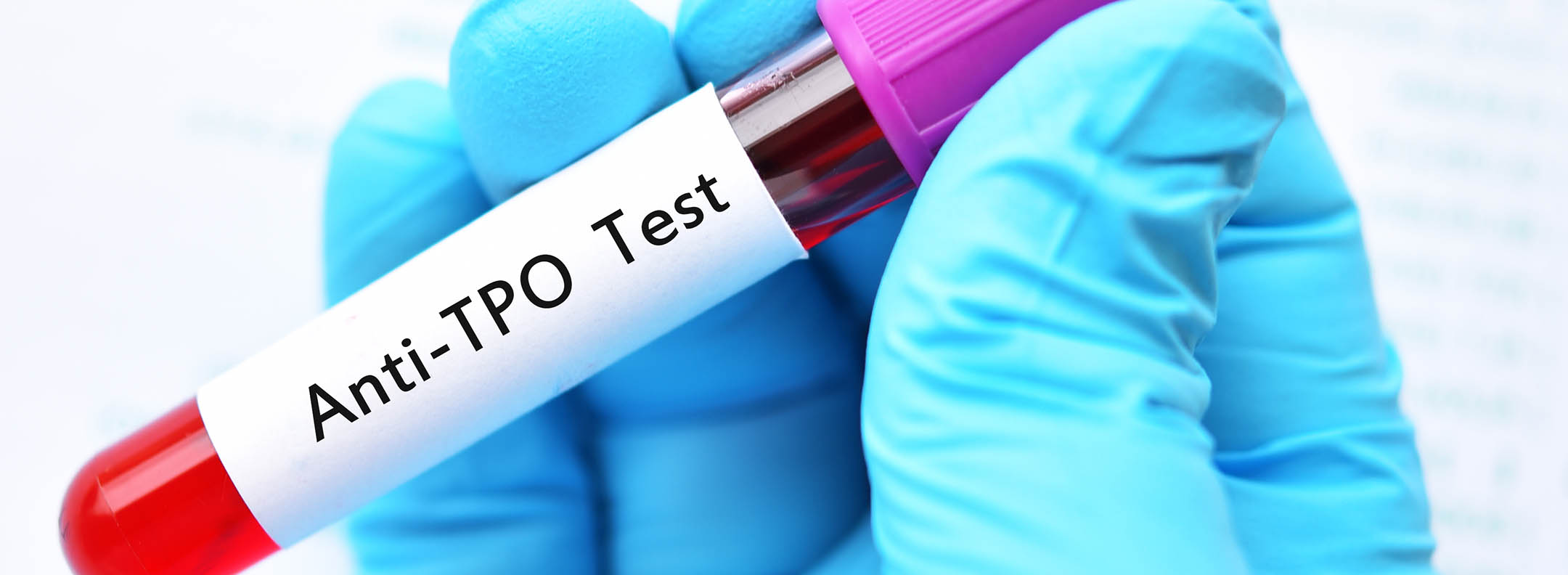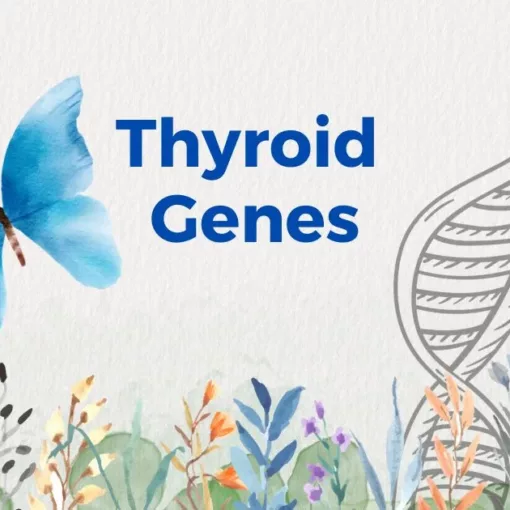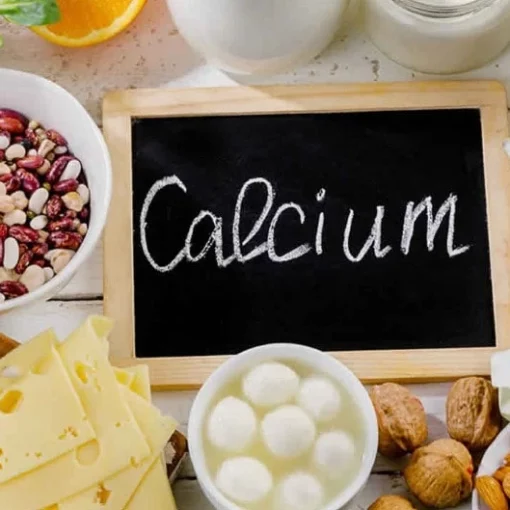Thyroperoxidase (TPO) is an enzyme that plays a crucial role in thyroid hormone production. It is responsible for catalyzing the iodination of tyrosine residues in thyroglobulin, a process necessary for the synthesis of thyroid hormones, such as triiodothyronine (T3) and thyroxine (T4). These hormones regulate the body’s metabolism and are essential for normal growth and development. TPO contains a vital component, which is a metal necessary for its proper function – this component is iron.
Iron’s Role in TPO (Thyroperoxidase) Function
Iron is an essential trace element that serves as a cofactor for TPO, allowing the enzyme to function efficiently. In the presence of hydrogen peroxide, Thyroperoxidase uses iron to catalyze the oxidation of iodide, which then binds to tyrosine residues on thyroglobulin. This process forms the precursors for thyroid hormones, ultimately leading to the production of T3 and T4. Without adequate iron levels, TPO cannot effectively catalyze thyroid hormone biosynthesis, which may result in thyroid dysfunction.
Iron Deficiency and Thyroid Issues
A deficiency in iron can adversely influence thyroid functionality. If the body lacks iron, it can diminish the effectiveness of Thyroperoxidase, possibly leading to a drop in thyroid hormone production. Consequently, this can lead to hypothyroidism, a disorder defined by an underactive thyroid gland.
Signs of hypothyroidism might encompass fatigue, increased weight, cold sensitivity, dry skin, and hair loss, among others. Furthermore, because iron contributes to hemoglobin synthesis—responsible for oxygen transport—it’s deficiency can induce anemia. Anemia and hypothyroidism share common symptoms like fatigue and weakness, which complicates distinguishing between the two disorders.
Thyroperoxidase: Assessing and Addressing Iron Deficiency
It is essential to identify and address iron deficiency, especially in individuals experiencing thyroid-related symptoms. Doctors can perform blood tests to gauge serum iron levels, total iron-binding capacity, and the levels of ferritin. Ferritin, a protein that stores iron, is a particularly valuable marker for assessing iron status, as its levels correlate with the body’s iron reserves.
The Role of Ferritin in Iron Storage
Ferritin, a protein crucial for iron metabolism in the body, primarily serves to store iron inside cells, guaranteeing adequate levels for different biological functions. While this protein is mostly found in the liver, spleen, and bone marrow, small amounts can also be detected in the bloodstream.
Iron is crucial for various functions, such as oxygen transport in hemoglobin, DNA synthesis, and cellular respiration. Given its importance, the body needs an efficient way to store and regulate iron levels. This is where this essential protein comes into play, acting as a buffer against iron deficiency and overload.
Ferritin Blood Test and Its Significance
A ferritin blood test is often used to assess the body’s iron stores. This test measures the amount of the protein in the blood, which correlates with the total amount of stored iron. Healthcare providers may order this test if a patient exhibits symptoms of iron deficiency, such as fatigue, weakness, or pale skin, or if there are concerns about iron overload, a condition known as hemochromatosis.
The results of the test can help diagnose several conditions related to abnormal iron levels. Low levels of the protein in the blood may indicate iron deficiency anemia, while high levels may suggest iron overload, inflammation, or liver disease. Remember, to ensure an accurate diagnosis, the test outcome should be considered along with other clinical and laboratory findings.
Factors Influencing Ferritin Levels
Various factors can influence the levels of this essential protein in the body. Some of these factors include:
- Diet: A diet lacking in iron-rich foods can lead to insufficient iron stores and, subsequently, low levels of the protein. Conversely, a diet high in iron or taking iron supplements can increase the protein levels.
- Age and gender: The levels of this protein tend to increase with age. Additionally, women of childbearing age generally have lower levels due to menstrual blood loss and increased iron requirements during pregnancy.
- Inflammation and infection: Inflammatory conditions and infections can cause an increase in the protein levels, even when iron stores are normal or low. This is because the body responds to inflammation by increasing the production of this protein to prevent the utilization of iron by pathogens.
- Liver disease: The liver plays a crucial role in iron metabolism, and liver diseases can affect the protein levels. In conditions such as cirrhosis or hepatitis, elevated levels of the protein may be observed.
Thyroperoxidase: Health Conditions Associated with Abnormal Ferritin Levels
Abnormal levels of this essential protein can be indicative of various health conditions. Some of these include:
- Iron deficiency anemia: Characterized by a lack of sufficient iron to produce healthy red blood cells, this condition can result from poor dietary intake, malabsorption, or blood loss. Low levels of the protein in the blood are typically observed in iron deficiency anemia.
- Hemochromatosis: This genetic disorder leads to excessive iron absorption from the diet and can cause iron overload. Elevated protein levels in the blood typically indicate hemochromatosis, reflecting excess iron stores in the body.
- Restless legs syndrome: Some studies have suggested a link between low levels of the protein in the blood and restless legs syndrome, a neurological disorder that causes an irresistible urge to move the legs.
- Inflammatory conditions: As mentioned earlier, inflammatory conditions, such as rheumatoid arthritis or inflammatory bowel disease, can cause an increase in the protein levels, even when iron stores are normal or low.
Upon identifying an iron deficiency, your doctor might suggest dietary alterations or supplementation to balance iron levels effectively. You should incorporate iron-rich foods such as red meat, poultry, fish, beans, and fortified cereals into your daily diet. Moreover, you can consume vitamin C with iron-fortified foods since it bolsters iron absorption.
Furthermore, if required, your doctor may recommend iron supplements to swiftly elevate your iron levels.
However, it is crucial to follow healthcare professionals’ guidance regarding dosage and duration of supplementation, as excessive iron intake can lead to toxicity and other health issues.






